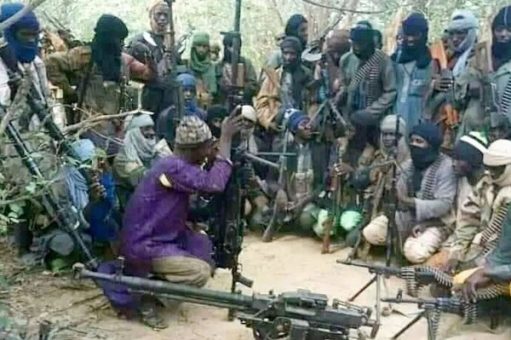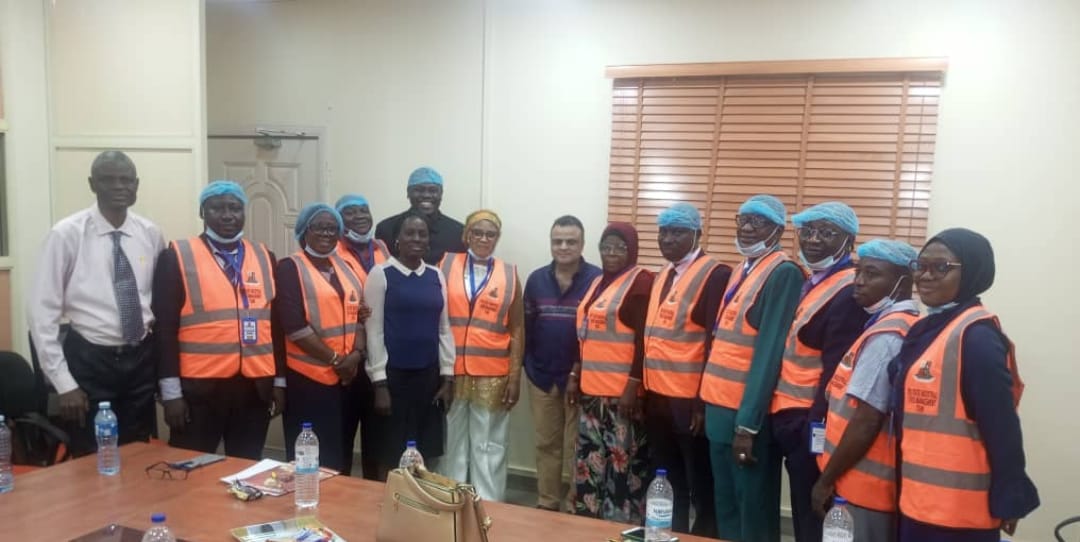Bauchi State, a northern Nigerian hub of academic excellence, is grappling with a chilling surge of violent crime targeting its student population. Over the past two years, off-campus hostels and residences linked to Abubakar Tafawa Balewa University (ATBU), Federal Polytechnic Bauchi, and Abubakar Tatari Ali Polytechnic (ATAP) have become battlegrounds for armed robberies, late-night break-ins, and fatal stabbings. These attacks have left students traumatised, injured, and stripped of their valuables, while exposing systemic failures in campus security and law enforcement. The recent killing of Samuel Mbami, an ND II Mass Communication student at ATAP, has intensified fears and sparked urgent calls for reform. As the state’s academic institutions reel from these incidents, the question looms large: how can Bauchi’s students be protected in an environment increasingly defined by fear?
A Deadly Night in Gwallameji
On the night of Friday, August 22, 2025, the quiet of an off-campus compound housing ATAP students in Bauchi’s Gwallameji corridor was shattered by the intrusion of suspected robbers. The assailants, with chilling audacity, scaled the back fence of the residence and launched a brutal assault. In the chaos, Samuel Mbami, a promising young student, was caught in a desperate struggle for survival. According to eyewitnesses, Mbami was stabbed multiple times during the attack and succumbed to his injuries due to excessive bleeding. The news of his death sent shockwaves through Bauchi’s student community, reigniting fears that have lingered for years.
The Bauchi State Police Command confirmed the incident, which was widely reported by credible media outlets, including local newspapers and online platforms. The killing underscored not only the brazenness of the perpetrators but also the acute vulnerability of students living in off-campus accommodations. Gwallameji, a bustling area home to thousands of students from ATBU, Federal Polytechnic, and ATAP, has become a focal point for such attacks, with its proximity to academic institutions ironically making it a prime target for criminals.
A Pattern of Violence
Mbami’s death was not an isolated tragedy but part of a disturbing pattern of violence that has plagued Bauchi’s student communities. Just ten days earlier, on August 12, 2025, armed robbers stormed the male hostel at Federal Polytechnic Bauchi, leaving a trail of destruction. Students were injured, and valuables, including gadgets and cash, were stolen in a meticulously planned raid. The attack sparked immediate outrage, with students taking to the streets in spontaneous protests to demand justice and enhanced security measures. The unrest prompted authorities to shut down the polytechnic indefinitely, a decision that only deepened the sense of insecurity among students.
The police response was swift but controversial. Officers deployed teargas to disperse protesters in the host community, and several arrests were made, further inflaming tensions. Student unions and civil society groups condemned the heavy-handed tactics, calling for the release of detained protesters and urging the government to address the root causes of the violence. The Gwallameji corridor, once a vibrant hub for student life, has become synonymous with fear, as residents brace for the next attack.
Suspects and Criminal Networks
Following the Federal Polytechnic raid, the Bauchi State Police Command identified three suspects: Mansur Yakubu, 20, also known as Chasu; Abbas Auwal, 20; and Musa Bala, 20, alias Baban Nani. All are residents of the Lushi community in Bauchi metropolis, a neighborhood that has emerged as a hotspot for criminal activity. According to CSP Ahmed Wakil, the police command’s spokesman, the suspects confessed to collaborating with a network of accomplices known by street names such as Kalifa, Daddy, Soja, Baki, Sunusi, Yellow, Mardi, Bello, R-Kelly, Muktazu, Sani, and Aikin Allah. This group allegedly operated with ruthless efficiency, targeting students at knifepoint to steal laptops, phones, and cash.
Musa Bala, a recently released ex-convict, reportedly coordinated the Federal Polytechnic attack at the behest of “Daddy,” described as the mastermind behind the operation. The involvement of an ex-convict highlights a broader issue: the failure of the justice system to rehabilitate offenders and prevent recidivism. The police have vowed to apprehend the remaining members of the criminal network, but for students, these assurances offer little comfort in the face of ongoing threats.
Echoes of Past Tragedies
The recent spate of attacks is not new to Bauchi’s academic communities. On July 17, 2023, robbers raided an off-campus lodge in Sabon Kaura, a neighborhood near ATBU, injuring students and stealing laptops and phones. The incident, though non-fatal, left a lasting impact on the student body, many of whom felt abandoned by institutional authorities. Just months later, on December 2, 2023, tragedy struck again when Joseph Agabaidu, a 500-level Geology student at ATBU, was fatally stabbed during a phone robbery near Yelwa market. His killing triggered widespread protests, with students demanding accountability and improved security. Police responded with teargas, further alienating the student community.
These incidents have created a pervasive climate of fear in areas like Sabon Kaura, Yelwa Tudu, and Gwallameji, where off-campus students are particularly vulnerable. The lack of adequate security infrastructure, coupled with the audacity of criminals, has left students feeling like sitting ducks. For many, the dream of pursuing higher education in Bauchi has been overshadowed by the constant threat of violence.
Systemic Failures in Campus Security
Security specialist Usman Dan-asabe has been vocal in his criticism of tertiary institutions for their failure to prioritize student safety. In an interview, he argued that many schools focus on generating revenue through tuition and other means while neglecting their responsibility to protect students. “It is alarming that armed robbers are emboldened enough to invade academic environments and target defenceless students,” Dan-asabe said. “These criminals see campuses and student areas as easy targets, attacking to snatch laptops, phones, and other valuables before escaping without consequences.”
Dan-asabe pointed out that many institutions rely on untrained security personnel who lack the intelligence and tools needed to prevent or respond to such crimes. “This shows a system that has failed,” he stated. “Within two weeks, there was a raid on the Federal Polytechnic male hostel followed by an attack on ATAP. These incidents are not isolated, as past records show a pattern of violence. Institutions should have drawn up proper security strategies by now.”
He called for a comprehensive overhaul of campus security, urging universities and polytechnics to collaborate with law enforcement agencies and invest in modern surveillance systems, trained personnel, and rapid-response mechanisms. “Internal security teams alone cannot contain these criminals who threaten learners’ lives,” Dan-asabe emphasized. “Universities and polytechnics need to create effective frameworks to safeguard students, both on and off campus.”
The Off-Campus Dilemma
Public affairs commentator Ismail Jamilu offered a complementary perspective, advocating for increased on-campus accommodation to reduce student exposure to crime. “While it is clear that campuses cannot house every student, minimising the number living off-campus would help curb these robberies,” he said. Off-campus housing, often located in poorly lit and sparsely patrolled areas, has become a magnet for criminals. Students living in these accommodations are particularly vulnerable, as they lack the institutional protections afforded to those in on-campus hostels.
Jamilu also called for stricter penalties for perpetrators of attacks on students, arguing that the justice system must send a clear message that such crimes will not be tolerated. “We cannot continue to tolerate this climate of violence in higher institutions, especially when similar issues have plagued primary and secondary schools,” he stated. His remarks highlight a broader societal challenge: the normalization of violence in educational settings, from primary schools to universities.
The Human Toll
Beyond the statistics and police reports, the human toll of these attacks is profound. Students like Samuel Mbami and Joseph Agabaidu were not just victims; they were young individuals with dreams, aspirations, and futures cut short by senseless violence. Their deaths have left families grieving, friends traumatized, and communities shaken. For every reported incident, countless others go unreported, as students fear retaliation or lack faith in the authorities.
The psychological impact on Bauchi’s student population cannot be overstated. Many students now live in constant fear, double-checking locks, avoiding late-night outings, and second-guessing their decision to study in Bauchi. The closure of Federal Polytechnic Bauchi following the August 12 attack has disrupted academic progress, leaving students uncertain about their future. For those who remain, the sense of community that once defined student life has been replaced by suspicion and anxiety.
A Call for Action
The rising tide of violent crime in Bauchi’s student communities demands urgent action from all stakeholders: institutional authorities, security agencies, government officials, and civil society. Universities and polytechnics must prioritize student safety by investing in robust security infrastructure, including CCTV cameras, trained personnel, and partnerships with local law enforcement. The expansion of on-campus housing, while a long-term goal, could significantly reduce the risks faced by students living off-campus.
The Bauchi State Police Command, while making strides in apprehending suspects, must intensify efforts to dismantle criminal networks like the one led by “Daddy.” Community policing initiatives, which involve collaboration between residents, students, and law enforcement, could help restore trust and improve security in areas like Gwallameji and Sabon Kaura. Additionally, the justice system must ensure that perpetrators face swift and severe consequences to deter future attacks.
Civil society groups and student unions have a critical role to play in advocating for change. Their protests and demands for accountability have already brought attention to the crisis, but sustained pressure is needed to translate promises into action. The government, at both state and federal levels, must allocate resources to address the root causes of crime, including poverty, unemployment, and lack of opportunities, which often drive young people into criminal activities.
A Community Under Siege
Bauchi’s student communities are at a crossroads. The promise of education, which draws thousands of young people to the state’s institutions each year, is being undermined by a relentless wave of violence. The deaths of Samuel Mbami, Joseph Agabaidu, and others are not just tragedies; they are a wake-up call for a society that has allowed its academic environments to become hunting grounds for criminals.
As the sun sets over Gwallameji, students lock their doors and brace for another night of uncertainty. The question is not whether another attack will occur, but when—and what it will take to finally break this cycle of terror. For now, Bauchi’s students can only hope that their cries for safety will be heard before more lives are lost.





